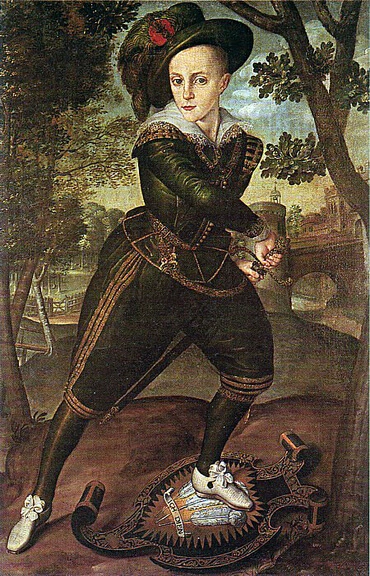1
And it cometh to pass on the eighth day, Moses hath called for Aaron and for his sons, and for the elders of Israel,
2
and he saith unto Aaron, `Take to thyself a calf, a son of the herd, for a sin-offering, and a ram for a burnt-offering, perfect ones, and bring near before Jehovah.
3
`And unto the sons of Israel thou dost speak, saying, Take ye a kid of the goats for a sin-offering, and a calf, and a lamb, sons of a year, perfect ones, for a burnt-offering,
4
and a bullock and a ram for peace-offerings, to sacrifice before Jehovah, and a present mixed with oil; for to-day Jehovah hath appeared unto you.'
5
And they take that which Moses hath commanded unto the front of the tent of meeting, and all the company draw near and stand before Jehovah;
6
and Moses saith, `This [is] the thing which Jehovah hath commanded; do [it], and the honour of Jehovah doth appear unto you.'
7
And Moses saith unto Aaron, `Draw near unto the altar, and make thy sin-offering, and thy burnt-offering, and make atonement for thyself, and for the people, and make the offering of the people, and make atonement for them, as Jehovah hath commanded.'
8
And Aaron draweth near unto the altar, and slaughtereth the calf of the sin-offering, which [is] for himself;
9
and the sons of Aaron bring the blood near unto him, and he dippeth his finger in the blood, and putteth [it] on the horns of the altar, and the blood he hath poured out at the foundation of the altar;
10
and the fat, and the kidneys, and the redundance of the liver, of the sin-offering, he hath made a perfume on the altar, as Jehovah hath commanded Moses;
11
and the flesh and the skin he hath burnt with fire, at the outside of the camp.
12
And he slaughtereth the burnt-offering, and the sons of Aaron have presented unto him the blood, and he sprinkleth it on the altar round about;
13
and the burnt-offering they have presented unto him, by its pieces, and the head, and he maketh perfume on the altar;
14
and he washeth the inwards and the legs, and maketh perfume for the burnt-offering on the altar.
15
And he bringeth near the offering of the people, and taketh the goat of the sin-offering which [is] for the people, and slaughtered it, and maketh it a sin-offering, like the first;
16
and he bringeth near the burnt-offering, and maketh it, according to the ordinance;
17
and he bringeth near the present, and filleth his palm with it, and maketh perfume on the altar, apart from the burnt-offering of the morning.
18
And he slaughtereth the bullock and the ram, a sacrifice of the peace-offerings, which [are] for the people, and sons of Aaron present the blood unto him (and he sprinkleth it on the altar round about),
19
and the fat of the bullock, and of the ram, the fat tail, and the covering [of the inwards], and the kidneys, and the redundance above the liver,
20
and they set the fat on the breasts, and he maketh perfume with the fat on the altar;
21
and the breasts, and the right leg hath Aaron waved -- a wave-offering before Jehovah, as He hath commanded Moses.
22
And Aaron lifteth up his hand towards the people, and blesseth them, and cometh down from making the sin-offering, and the burnt-offering, and the peace-offerings.
23
And Moses goeth in -- Aaron also -- unto the tent of meeting, and they come out, and bless the people, and the honour of Jehovah appeareth unto all the people;
24
and fire cometh out from before Jehovah, and consumeth on the altar the burnt-offering, and the fat; and all the people see, and cry aloud, and fall on their faces.







